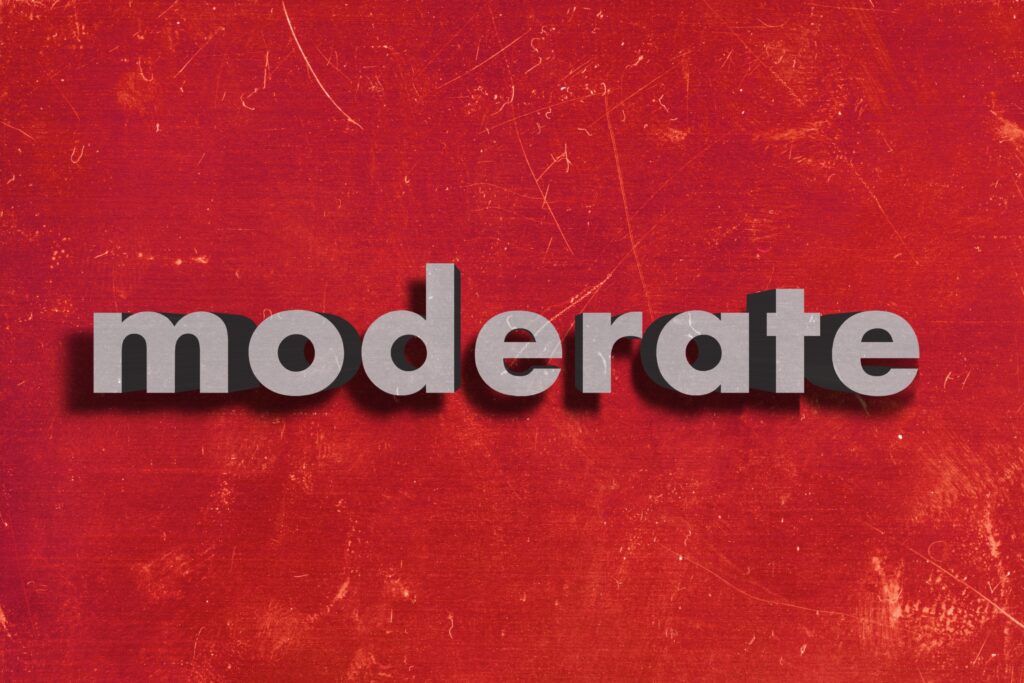How Did “Moderate”
become the designated word to describe managing a panel of speakers? It’s an intriguing concept, this idea of moderation. The phrase “everything in moderation” apparently started in ancient Greece in the 6th century BC! So how do we update this role for modern-day panels?
As A Moderator, Your Job
is to responsibly direct and guide the contributions of a group of speakers to serve the audience’s needs. With a light touch. Not too much; not too little. Being a moderator is an active assignment; you’re definitely not passive.
Set The Tone
We’ve all seen plenty of stodgy panels with talking heads. Don’t hesitate to take on the role of Director and decide on the tone. Do you want to aim for upbeat, intriguing, helpful, surprising? This panel has been scheduled for a reason…why? If it’s not obvious from the title and choice of panelists, YOU choose. What does the audience need? And how can your panel best deliver it?
Inject The Energy
If boring is the default, it’s up to you to bring in enough energy to lift the proceedings above the mundane. Open with energy. Liven up the room. Ask your audience a few questions to get them engaged and curious. What’s today’s goal and why’s it important? What’s your intended outcome? How will you handle questions from the floor or the chat? Be specific. Use short sentences. Set a good pace right out of the gate as you jump in!
Manage The Time
You are the keeper of the clock, a huge responsibility. Everyone will have too much to say. Speakers drone on. Questioners do, too. Make some of your own questions super short. Work your planning backwards from your hard stop, and build in enough time for your close. As you wrap, repeat key themes, reference a point each panelist has made (that’s why you took notes), reinforce the audience take-away and thank everyone.
Big Yes’s!
– Contact your panelists well ahead of time, to give them time to prepare.
– Send a solid email including: your goals, specific timing for Q&A, stage logistics like seating and microphones (get this info from the meeting planner). Ask them to submit questions they’d like to address, a brief personal intro, and ONE reason why each of them is uniquely qualified to be on this panel (you can use this in your intros for some humor and relatability).
– Try for a group Zoom call after you’ve received responses, so everyone can get a sense of personalities and areas of expertise.
– As part of your opening, do a mini-intro (NOT a bio) for each panelist. I like a simple name, title, company and one off-beat factoid they’ve provided to you (see “uniquely qualified” above).
– A good answer is 2 minutes long! Tell your panelists to keep it short!
– Keep your own questions short and specific.
– Use panelists’ names throughout:
“Andre, what’s your take on Kim’s view?”
“Marie, thank you for that explanation and in the interest of time, we’re going to move on to…”…
– Use words of thanks:
“I’m grateful to have xxx joining us…”
“I appreciate xxx contributing their perspective…”
“I’m pleased to introduce xxx…”
“I want to welcome xxx to…”
– Ask for examples, anecdotes, war stories:
“Did anyone handle that challenge differently?”
“Anyone care to add some color commentary on this approach?”
– Have your own questions at the ready if the audience isn’t especially active:
“A question I’m often asked is…”
“As I was preparing for today’s panel, I found myself wondering why/how…”
– Ask for a 30-second final takeaway from each panelist to close.
No-No’s!
– Don’t assume anything. You’re the Director and you’re running the show. Put your plan in writing beforehand, so your panelists know their specific timing (2-minute answers!). A visible timer (clock counter) onstage that everyone can see is very helpful.
– Don’t pose questions to panelists in the same order, over and over. Mix ‘em up.
– Don’t ask only broad, overview questions. Try to solicit concrete examples and personal experiences.
– Don’t be too formal. Let your humor and personality come through.
– Don’t take sides, even as you solicit alternate views and controversy: “I know we can all agree to disagree.”
– Don’t be afraid to interrupt when needed. “Given our time constraints…”
– Don’t hesitate to equalize airtime as best you can, offering space to more soft-spoken panelists and limiting air-hogs (always done with a smile).
– Don’t forget to make eye contact with members of your audience and talk directly to them, not just to your panelists.
-Don’t talk too much. Showcase your fabulous panelists and make them look terrific by keeping their conversation flowing.
– Don’t wing it! Practice asking your questions and possible follow-up questions out loud.
In Moderation
Let me stop here and take my own good advice about everything in moderation. If you’d like more, please click on this link for additional tips and techniques.
I know you’re going to be a Great Moderator! It’s a terrific opportunity and I hope you enjoy the process. Let me know how it goes…
P.S. You also may want to check out last month’s sister post, Speaking On A Panel?
Be the happy recipient of more great tips and techniques, along with intelligent musings on the state of communications, by signing up for Diane Ripstein’s regular NewsNotes right here.
